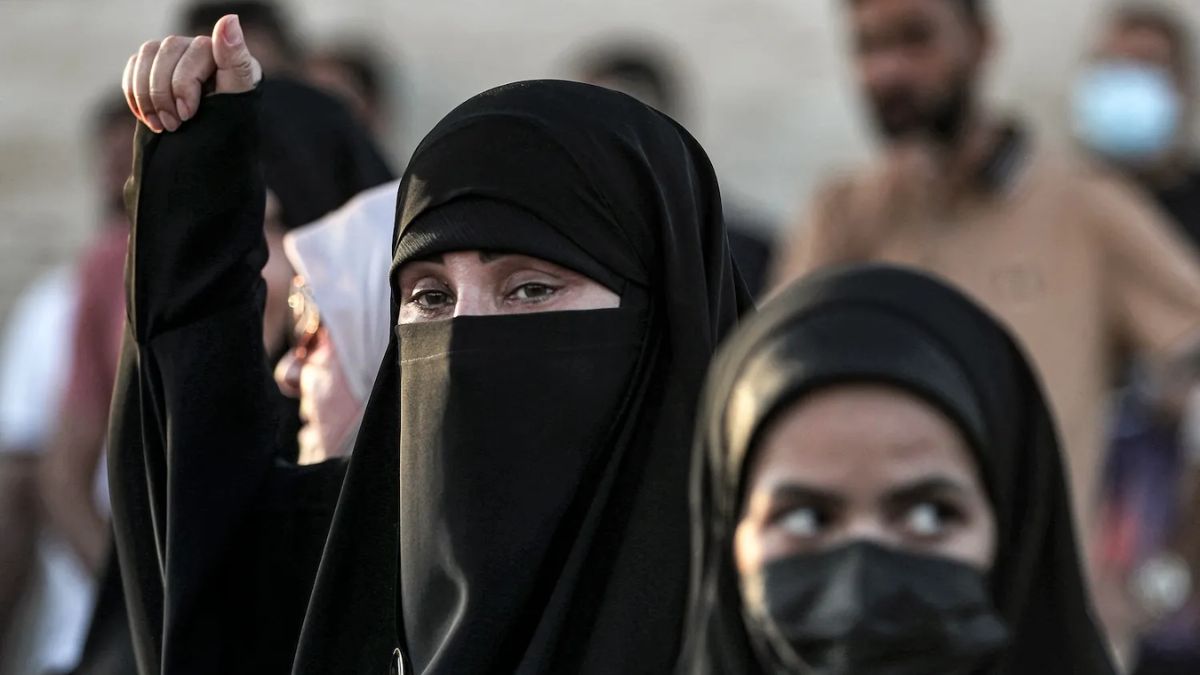The homes were never meant to be permanent. Built quickly, with whatever materials could be found– corrugated metal, clay, unfinished bricks– many offer little protection from the heat of summer or the bitter cold of winter.
For thousands of women returning to Iraq’s war-ravaged towns and villages, these makeshift shelters are all they have.
In Iraq, years of conflict – including the rise and fall of the Islamic State (IS) and earlier waves of violence– forced millions to flee their homes. Even now, over 1 million people remain internally displaced and nearly 5 million face precarious conditions as returnees. Women, in particular, encounter unique challenges.
Always on the move
As the government pushes to close displacement camps, women who once sought refuge elsewhere are being sent back to areas that remain hostile or uninhabitable, according to a joint report by the Danish Refugee Council (DRC), Justice Center Iraq (JCI) and Hawa Organisation Danish Refugee Council.
One woman in Diyala said in a focus group discussion that she has moved six times in two years. Another mentions she has been forced to move thrice in just six months because the accommodation that she was renting was eventually sold off.
Across Iraq, displaced women– many of them widows or the sole providers for their families– are struggling to rebuild their lives in communities where they are often unwelcome.
Some return to homes that have been destroyed. Others are accused of ties to extremist groups, making them targets of suspicion and discrimination.
“I own a house, but unknown people damaged it because my husband is an ISIS member and I cannot return to the house or restore it,” says Sara*.
Even local authorities– Mukhtars– are often not sympathetic to the plight of women suffering due to the scourge of conflict. Aaliyah* says, “I am threatened with eviction by the Mukhtar [local authorities] from where I currently live and forced to return to my area of origin.” She is forced to return, but there is no place to go back to. “My house is completely destroyed,” she rues.
Impact Shorts
More ShortsNo jobs
Many of the returnees once relied on agriculture and livestock, but those livelihoods have vanished. Farmland has been taken over by armed groups or left barren.
Government aid is nowhere near enough help. Many rely on Iraq’s social welfare program, but the payments are meager– barely enough for a week’s expenses. “We live on a social welfare salary, which is not enough for one person. The social welfare salary is a salary of humiliation,” one person interviewed by DRC said.
Some women described trying to restart their businesses, such as sewing and selling small goods, only to find they lack the money or materials.
The few who manage to find work often face stigma or outright hostility. Sajda* mentioned how her family disowned her when she began working as a cleaner. “I have orphans, and I work as a cleaner. My family disowned me because I am doing this job. I have no other solution. How can I live with the orphans, since I am displaced and a widow with no income? I must provide for a living, no matter how hard the work is,” she says.
Another woman hid her employment from relatives, fearing they would forbid her from leaving the house.
No safety
Intertwined with these socio-economic challenges are very visceral threats to safety.
In Iraq, navigating life without a male guardian is no mean feat. One woman said she was being harassed by a man who lives next door to her. “[He] justifies his behaviour by saying I am a ‘Daesh wife.’ He uses bad words to describe me, he thinks he has the right to do so.”
In some communities, returnees– especially those suspected of militant affiliations– fear for their safety. A woman in Salah al-Din said she was regularly followed by a man who took photos of her without consent and threatened her.
Even the police is of little help in such cases. “I am subjected to harassment, discrimination and violence by everyone in the area because I am a woman, I have no man behind me,” Farha* says. “I have complained to the police, but to no avail.”
Reports of discrimination, especially between the families of those affected by ISIS and the families of ISIS members, are plenty. They cast a long shadow over positive interactions, such as neighbours being helpful to displaced women and assisting them in settling in.
An unhelpful bureaucracy
Even the process of applying for aid is fraught with obstacles. Many women reported not submitting any compensation claims because they lack funds to pay a lawyer or lack certain documents. Others said officials demanded bribes before processing their paperwork.
“I have three children without any identification documents, and my husband is missing. I was subjected to harassment and was asked to bribe the official to obtain legal documents,” one woman said. Another said, “I swear I had to pay bribes to be able to get my martyr husband’s salary. One feels that life has become ugly. Everyone wants to eat each other.”
Lifetimes between hope and uncertainty
Despite the hardships, many women remain determined to rebuild their lives. Some spoke of wanting to start businesses if given the right support: small bakeries, tailoring shops, or women-run grocery stores. Others said they wished they could return to farming but lacked the resources to reclaim their land.
But even as they look to the future, uncertainty remains. Without secure housing, steady employment, or a clear path to reintegration, many feel trapped– displaced not by war, but by the conditions of their own country.
“We don’t want to return,” one woman said. “We got used to being here, after all. Our life became better despite the difficulties. Before, we had crops and orchards. Now, everything is gone. Why would we go back?”
A lifetime passes everyday for Iraqi women wrestling with this question.


)

)
)
)
)
)
)
)
)



